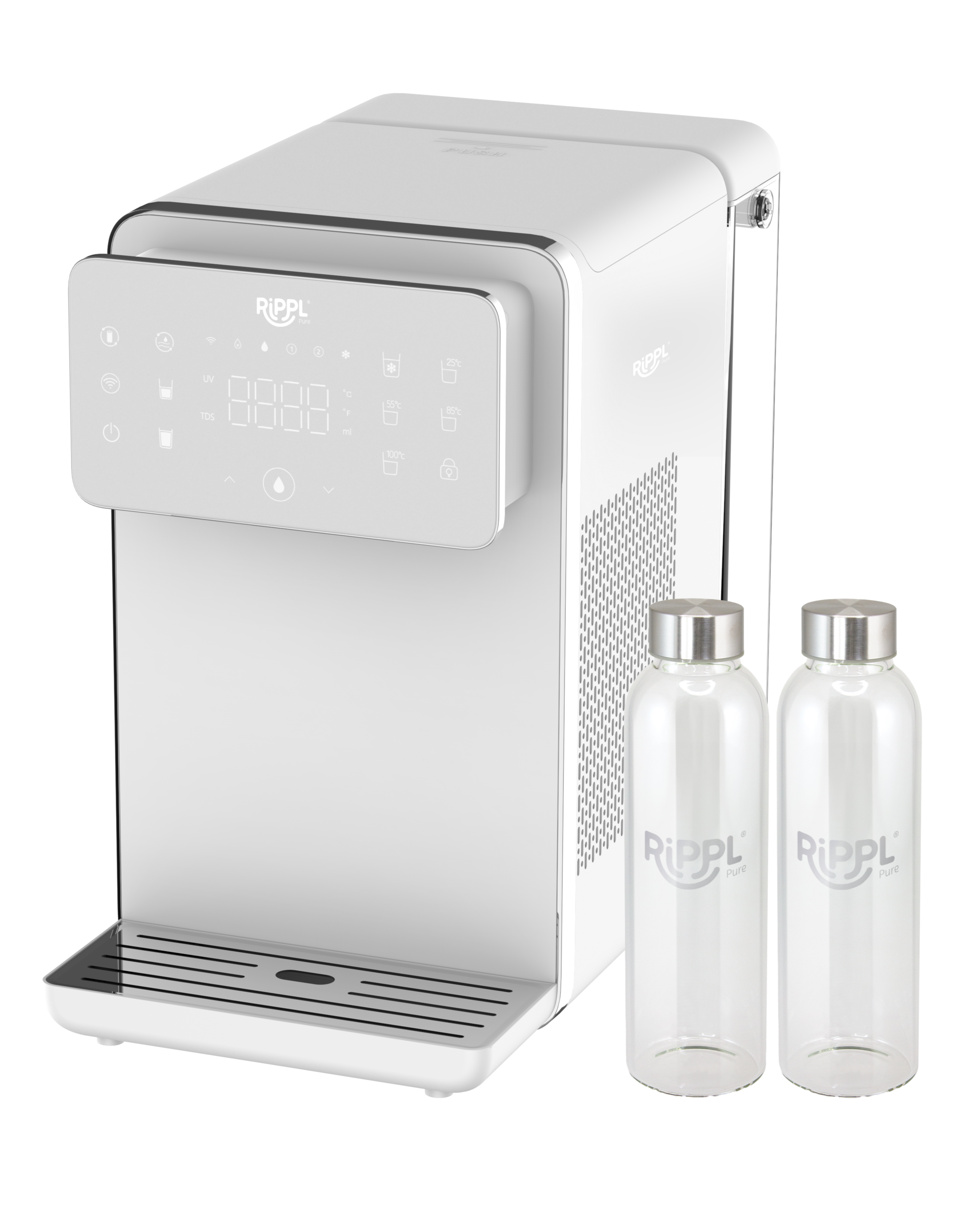Article: Understanding Tap Water: A Comprehensive Guide

Understanding Tap Water: A Comprehensive Guide
In today's fast-paced world, the quality of our drinking water has become more crucial than ever. Tap water is a common source of hydration for millions, but how well do we really understand what's flowing from our faucets? In this comprehensive guide, we'll dive deep into the world of tap water, uncovering its sources, benefits, potential contaminants, and the importance of using a water filter. Whether you're a health enthusiast or simply a curious consumer, this article aims to provide you with valuable information about the tap water you consume daily.
What is Tap Water?
Tap water is water that is supplied to homes and businesses from a municipal or well source. This water undergoes treatment processes to ensure it meets safety standards for consumption. Tap water varies in composition depending on geographic location, source, and treatment methods, but its primary goal remains the same: to provide a convenient and safe source of hydration.
The Sources of Tap Water
The primary sources of tap water come from surface water and groundwater. Surface water includes rivers, lakes, and reservoirs, while groundwater is drawn from aquifers underground. Each source goes through rigorous treatment processes to ensure the water is safe for drinking. Let’s take a closer look at these sources:
- Surface Water: This includes rivers and lakes that collect precipitation and runoff from surroundings. Surface water is treated to remove impurities and is usually chlorinated and filtered.
- Groundwater: Drawn from wells, groundwater typically has a lower level of contaminants but can still contain minerals and pollutants depending on local geological conditions.
The Treatment Process of Tap Water
Once the water is sourced, it undergoes several treatment processes before it reaches your tap:
1. Coagulation and Flocculation
The first step in treating surface water involves adding chemicals to clump together dirt and other particles. This process results in the formation of larger particles called floc. These particles are then removed from the water.
2. Sedimentation
After flocculation, the water is allowed to settle in a tank. The heavier particles sink to the bottom, leaving clearer water above.
3. Filtration
Next, the clear water is passed through filters made of sand, gravel, and charcoal. This step removes any remaining impurities, including bacteria and chemicals.
4. Disinfection
The final step of the treatment process involves adding disinfectants like chlorine or chloramine. This is crucial for killing any remaining pathogens, ensuring the water is safe for consumption.
Potential Contaminants in Tap Water
Even though tap water is treated, it can still contain certain contaminants. Here are some of the common potential hazards:
- Chlorine: While chlorine is crucial for disinfection, some people may find its taste and smell unpalatable.
- Lead: Old pipes can leach lead into the water, posing health risks, especially for young children.
- Pesticides and Herbicides: Agricultural runoff can introduce harmful chemicals into the waters, which may find their way into our drinking supply.
- Heavy Metals: Contaminants like arsenic and mercury can occur naturally in the environment or due to industrial processes.
The Benefits of Drinking Tap Water
Despite the potential contaminants, drinking tap water has several advantages:
- Cost-Effective: Tap water is significantly cheaper than bottled water, making it an economical choice for consumers.
- Convenience: It is readily available at home and does not require the need for transportation.
- Environmental Impact: Choosing tap water helps reduce plastic waste associated with bottled water
- Mineral Content: Local municipalities often add minerals to tap water, which can be beneficial for your health.
Why Consider a Water Filter?
While tap water is generally safe, using a water filter can significantly improve its quality. Here are some reasons to consider investing in a water filter:
1. Improved Taste and Odor
Many water filters effectively remove chlorine and other contaminants, resulting in water that tastes and smells fresher.
2. Removal of Contaminants
A quality water filter can eliminate various contaminants such as lead, mercury, and other chemicals that may affect your health.
3. Healthier Hydration
By ensuring your drinking water is free from harmful substances, a water filter promotes better hydration and overall well-being.
4. Peace of Mind
Using a water filter gives consumers confidence that they are drinking clean and safe water, reducing anxiety over potential contaminants.
Types of Water Filters
When thinking about a water filter, it’s essential to choose the right type based on your needs:
- Activated Carbon Filters: These are highly popular as they improve taste and reduce contaminants like chlorine, sediment, and volatile organic compounds (VOCs).
- Reverse Osmosis Filters: Using a semi-permeable membrane, these filters can remove a broader range of contaminants, including heavy metals and some microorganisms.
- UV Filters: Ultra-violet filters use UV light to kill bacteria and viruses but do not remove chemical contaminants.
- Pitcher Filters: Simple to use, these are a convenient way to filter water, but they may not remove all contaminants.
Choosing the Right Water Filter for Your Needs
With numerous options available on the market, here are some factors to consider when selecting the perfect water filter:
1. Water Quality
Before purchasing, it's important to test your tap water. Many consumer reports and local water quality reports can help identify the specific contaminants present. Choose a water filter that targets these specific contaminants effectively.
2. Filter Maintenance
Filters need regular maintenance, including changing cartridges as recommended by the manufacturer. It's essential to consider whether you're willing to commit to this upkeep when selecting a filter.
3. Cost
Water filters can vary greatly in price, so set a budget that fits your needs. While some higher-quality filters may require a larger upfront investment, they can save you money in the long run due to their efficacy and durability.
Understanding Local Water Regulations
Every region has specific regulations governing water quality and safety. The Environmental Protection Agency (EPA) sets standards for public drinking water systems in the United States. Understanding local regulations can help you make informed decisions regarding your tap water and the necessity of a water filter. Inquire about your municipality's water quality reports, which are often available online or upon request.
Ways to Enjoy Your Tap Water
Now that you've ensured your tap water is safe and potentially filtered, there are plenty of fun and innovative ways to enjoy it:
- Infused Water: Add fruits, herbs, or vegetables to your water for a refreshing twist.
- Flavored Ice Cubes: Freeze fruit juices or herbal teas into ice cubes for adding a splash of flavor to your drinks.
- DIY Sparkling Water: By investing in a soda maker, you can create your carbonated water at home.
- Chilled Water: Keep a pitcher of your filtered tap water in the refrigerator for a cool and refreshing drink.
Staying Hydrated: The Importance of Drinking Enough Water
Adequate hydration is essential for maintaining overall health. Water plays a vital role in various bodily functions, including digestion, temperature regulation, and nutrient transportation. Aim to drink around 8-10 glasses of water daily, adjusting based on your activity levels, climate, and individual health needs. By incorporating your filtered tap water into your daily routine, you can effortlessly stay hydrated and healthy.
Making the Most of Your Tap Water
In conclusion, understanding tap water is fundamental to making informed decisions about your hydration. With insights into its sources, treatment processes, benefits, and potential contaminants, you can feel confident about your water choices. Consider investing in a water filter to enhance the quality of your tap water. Not only will you enjoy better taste and safety, but you’ll also contribute positively to your health and the environment. Cheers to clean and refreshing hydration!


